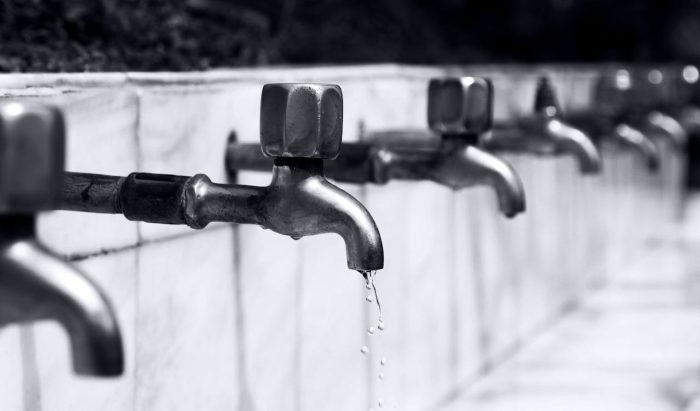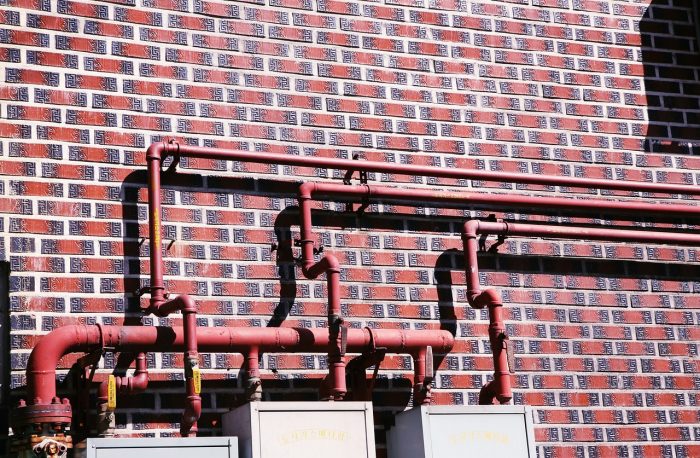
Modern infrastructure would not be possible without plumbing, which is essential for a number of reasons. This includes the distribution of potable water, the elimination of waste, and the efficient operation of HVAC systems. Although plumbing’s underlying concepts are universal, commercial and residential plumbing systems differ significantly. Property owners and experts in the field must be familiar with these differences.
Here are some differences between commercial and residential plumbing
Commercial Plumbing
Commercial plumbers work on bigger structures, including industrial facilities, shopping centers, office complexes, and hospitals. Important characteristics include:
- Materials:
Heavy-duty PVC, cast iron, and steel are common materials used in commercial plumbing. This is because they are more robust and can withstand increased use and pressure.
- Common Systems:
- It typically comes with fire suppression systems and must be able to handle heavy water use.
- Systems that deal with high amounts of wastewater, often requiring specialized treatment, are part of this category.
- HVAC systems that are greater in scope and complexity than those typically seen in homes.
- Maintenance and Repairs:
Because of the size and complexity of commercial plumbing systems, experienced plumbers are required to perform routine maintenance. To avoid expensive interruptions, preventive maintenance is essential.

- Scale and Intricacy:
Larger and more intricate commercial systems can manage increased demand and consumption. These buildings are characterized by several levels and vast networks of pipes.
Residential Plumbing
Small apartment buildings, townhouses, and single-family homes are all considered to have residential plumbing systems. Important aspects consist of:
- Materials:
Pipes made of copper, PEX, and PVC are common in household plumbing.
- Common Systems:
- Water heaters provide hot water for domestic use.
- Takes wastewater out of showers, toilets, and sinks.
- Provides outdoor spaces, bathrooms, and kitchens with drinkable water.
- Complexity and Scale:
Commercial plumbing systems tend to be larger and more intricate than their residential counterparts. They optimize their layout to accommodate a single family or a small group of people.
- Repairs and Maintenance:
Residential plumbers or homeowners typically handle repairs and maintenance. This category includes things like unclogging drains and fixing dripping taps.
Key Differences
- Cost
Because of the scale and intricacy of the systems involved, commercial plumbing typically has greater installation, repair, and maintenance expenses.
- Regulatory Compliance
Because of the greater potential for harm that comes with public and industrial plumbing, more stringent rules and regulations are in place to ensure compliance.
- Use Patterns
Residential plumbing experiences occasional use, in contrast to commercial systems, which endure continuous or heavy usage and necessitate sturdy materials and design.
Is PEX OK for commercial plumbing?
Yes, commercial plumbing typically works well with PEX. It is an excellent choice for business and residential use because of its many benefits:
Resistant to Freezing
Because PEX can expand slightly when frozen, pipes in colder climates are less likely to burst.
Cost-Effective
When compared to more conventional plumbing materials, such as galvanized steel or copper, PEX’s material and installation costs are typically lower.
Durability
This product is resistant to pinholes and corrosion, as well as chlorine and scale, and can withstand a wide range of pressures and temperatures.
Noise Decrease
Water flowing through a PEX plumbing system typically produces less noise than that of a metal one.
Flexibility
The flexibility of PEX tubing makes it easier to install with fewer fittings, which in turn reduces the likelihood of leaks.
However, there are several factors to consider.
- Connections and Fittings
Even though PEX doesn’t need as many fittings, it’s still important to pick high-quality fittings that won’t let any water in during installation.
- Ultraviolet Sensitivity
Because PEX is UV-sensitive, never place it in direct sunlight for extended periods of time.
- Code Compliance:
It is important to check the local construction codes and regulations to make sure that the use of PEX complies. Some places may have limits.
You should check with a plumbing expert or professional plumber to make sure PEX is the best option for your business’s unique plumbing requirements.
How does water get to your second story
Through the use of water pressure in the plumbing system, water is able to reach the second level of a building. Here’s a high-level explanation of how it works:
Maintaining Pressure
The system’s pressure forces water through the pipes until it eventually reaches facilities like showers, toilets, and sinks on the second floor. A constant flow at all levels of the home necessitates a high enough pressure.
Water Pressure
Pumps or gravity (due to the water tower’s height) help to generate the water pressure. This pressure is required when water is conveyed from the system to residences.
Plumbing System and Pipes
Several appliances and fixtures in the house get their water supply from a system of pipes. Vertical pipes, known as risers, carry the water to the top levels.
Main Supply Line
Water enters the house through a main supply pipe that connects to the municipal water supply. The basement, or ground level, is often where this line enters the building.
Water Pumps (if required)
Some situations, especially in taller structures or areas with poor municipal water pressure, may require the installation of extra water pumps to ensure sufficient pressure and flow to the top floors.
Municipal Water Supply
A municipal water supply system helps deliver water to residences. Water towers or reservoirs are popular places to store water because they help keep the pressure constant.
Water is able to reach and be utilized on the second story of a structure because of the combination of the plumbing system’s design, municipal pressure, and any additional pumps that may be present.
Conclusion
Ensuring that buildings are comfortable, safe, and functional for their occupants is the job of plumbers, whether they work in commercial or residential settings. Professionals need specialized knowledge and abilities to operate successfully in either domain. This is due to the differences in regulatory requirements, complexity, scale, and materials, although they share some fundamental principles. If you want to install, maintain, or fix commercial and residential plumbing systems with confidence, knowing these differences will help.
